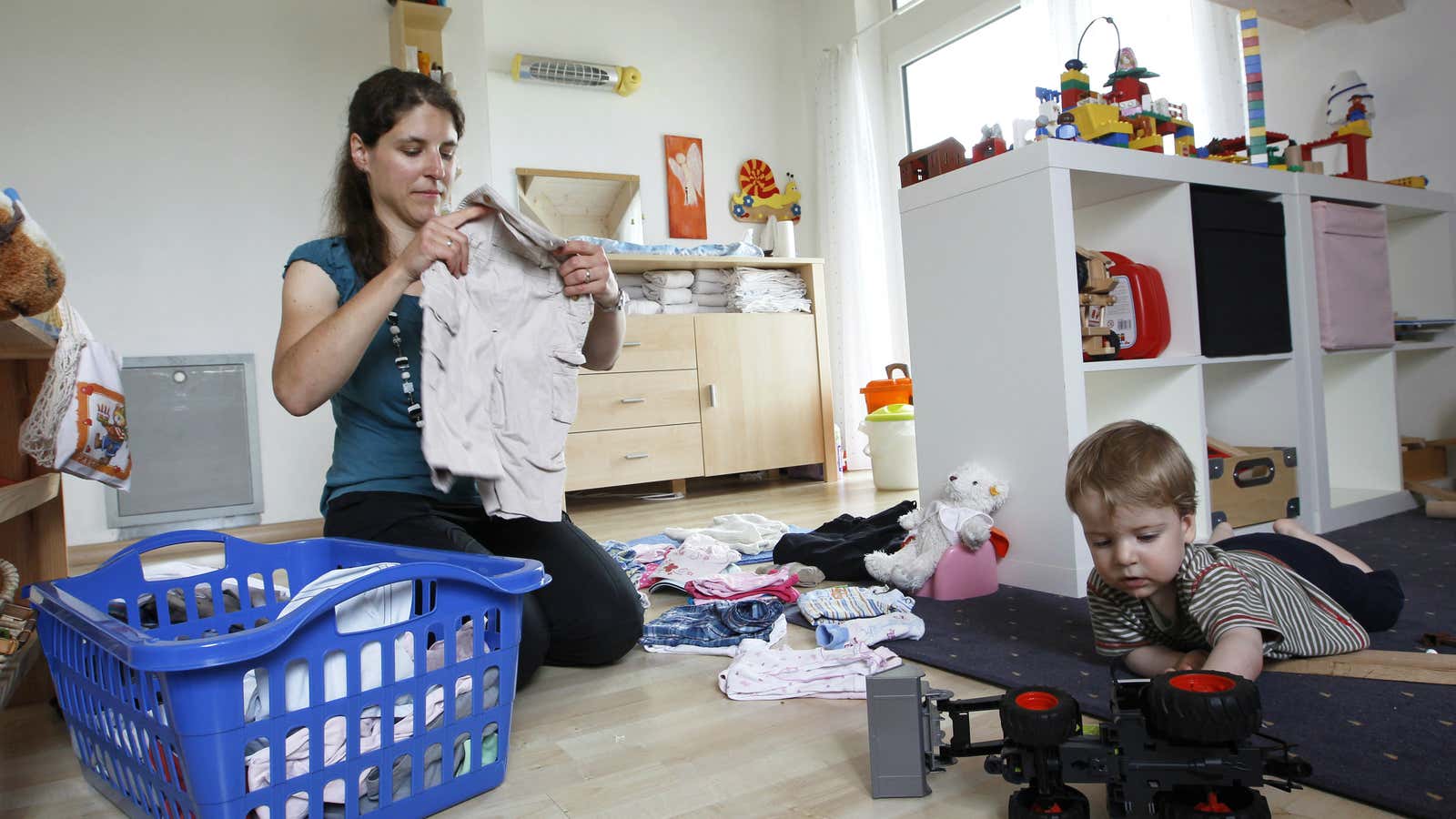Brits did a lot of household work for free in 2016—about £1.24 trillion ($1.6 trillion) worth, according to the UK’s Office for National Statistics. That’s almost £19,000 per person.
This unpaid housework—including childcare, elder care, along with cleaning and the like—was the equivalent of 63% of the UK’s gross domestic product that year, the agency said this week.
The total value of unpaid work is greater than that of the UK’s non-financial corporate sector, which makes up everything from retailers and manufacturers to utilities and business services. The most valuable part of unpaid housework is “transport services”—ushering your family to and from school, work, and soccer practice, say. That’s closely closely followed by childcare.
All this unpaid work doesn’t come cheaply. In 2016, 16% of consumer spending went toward the direct costs of providing unpaid work, primarily to pay for fuel and food. There’s also a large gender gap when it comes to housework. Previous ONS research found that women carry out an average of 60% more unpaid work than men. On average, men do 16 hours a week of unpaid work, compared to the 26 hours by women.
The ONS figures are part of a trend to supplement GDP with other meaningful data to create a more complete picture of economic health. For decades, GDP has been the singular most important number by which a nation’s progress is judged. But it’s a flawed measure. It can only count transactions that have a stated market price. It fails to consistently take into account well-being and is struggling to adapt to technological change. As more goods and services are provided online for free at the point of use, they are cut out of GDP.
Though it will be hard to replace, there’s a growing movement to diminish the importance of GDP in favor of other measures. The ONS is developing a suite of measures including economic well-being, human capital (the value of people’s skills and experiences), and natural capital (the value of the environment, which also shows how economic activity may degrade the environment).
